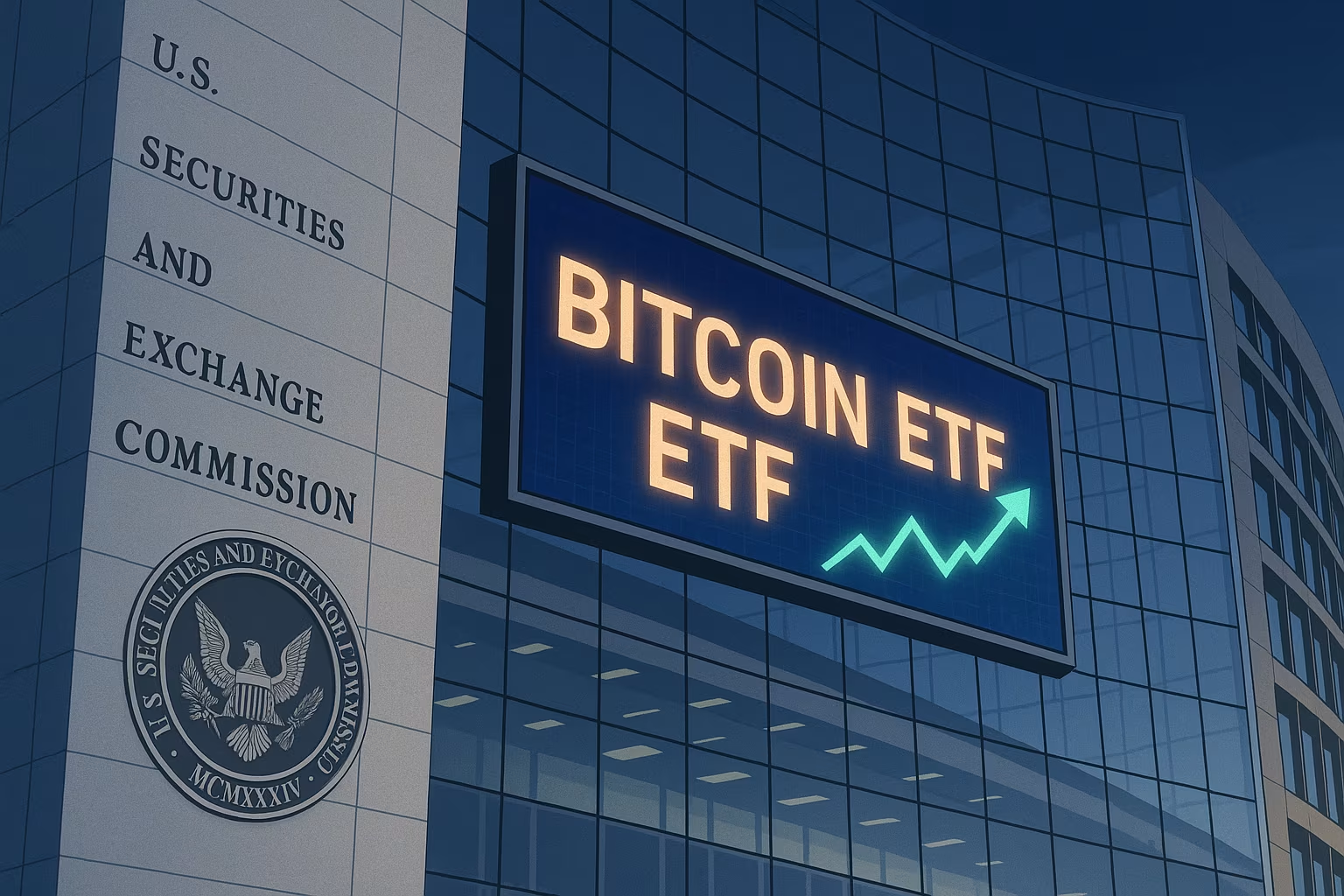A subtle yet significant regulatory change by the U.S. Securities and Exchange Commission (SEC) could mark a turning point for cryptocurrency exchange-traded funds (ETFs), moving them closer to widespread acceptance among traditional investors. While it did not make major headlines, the adjustment is being viewed by market analysts as a structural green light for the next phase of crypto integration into the financial mainstream.
This shift comes at a time when institutional and retail interest in digital assets is steadily rising, and the demand for more accessible, regulated investment products is stronger than ever. The SEC’s move, although technical in nature, could help bridge the gap between Wall Street and the crypto world.
The Rule Change in Focus
The adjustment centers on how the SEC treats certain types of digital asset ETFs within the broader regulatory framework. Specifically, the rule change streamlines approval pathways for funds that track cryptocurrencies and related assets, provided they meet enhanced transparency, custody, and compliance requirements.
For years, the SEC has been cautious about allowing crypto ETFs to enter the U.S. market, citing concerns over market manipulation, liquidity risks, and inadequate investor protections. While a limited number of spot and futures-based crypto ETFs have been approved, the process has been slow and highly selective.
This new procedural shift effectively reduces friction for ETF issuers seeking to launch products tied to crypto indices, token baskets, or hybrid portfolios that combine digital and traditional assets. It does not represent a blanket approval for all crypto ETFs, but it signals a more open regulatory stance.
Why This Matters for the Market
Crypto ETFs are seen as a crucial tool for expanding digital asset adoption beyond the crypto-native investor base. They allow exposure to Bitcoin, Ethereum, and other tokens without the need for direct ownership, private keys, or crypto exchange accounts — lowering barriers for traditional investors.
By easing the path to approval, the SEC is sending a message that it is willing to work with the industry to bring these products into compliance rather than keep them sidelined. This aligns with growing calls from asset managers, banks, and fintech companies for clearer regulatory guidance that supports innovation while protecting investors.
The change could also encourage new entrants into the ETF space, intensifying competition and potentially reducing management fees — a win for investors seeking cost-efficient access to crypto markets.
Institutional Implications
One of the biggest potential impacts of this rule shift is on institutional adoption. Pension funds, insurance companies, and asset management firms have traditionally avoided direct crypto exposure due to custody risks, valuation challenges, and unclear regulations. ETFs solve many of these problems by offering regulated, exchange-listed products with standardized reporting.
If more crypto ETFs come to market under the updated SEC framework, institutional players could view them as a safer on-ramp to digital asset investing. This would represent a significant capital inflow into the sector, potentially boosting liquidity and market stability.
Boost for Market Innovation
The rule change also opens the door for more creative ETF structures. Asset managers may now be able to design products that track a wider range of digital asset indices, decentralized finance (DeFi) tokens, or tokenized real-world assets, while still meeting SEC compliance standards.
This could lead to hybrid products that appeal to both crypto enthusiasts and traditional investors, such as ETFs blending blue-chip cryptocurrencies with technology sector equities, or funds offering exposure to blockchain infrastructure alongside traditional commodities.
Crypto Market Response
While the announcement was subtle, crypto markets reacted positively, with major tokens like Bitcoin and Ethereum posting modest gains in the days following the news. Analysts suggest that the optimism stems not from immediate ETF launches, but from the perception that regulatory resistance is softening.
ETF issuers have already begun preparing applications under the new guidance, and industry insiders expect the number of filings to increase over the next six to twelve months. The SEC is still likely to reject proposals that fail to meet strict standards, but the overall tone has shifted from defensive to cautiously constructive.
The Road Ahead: Balancing Innovation and Oversight
Despite the encouraging signals, challenges remain. The SEC will still closely monitor how these products are marketed, ensuring that risk disclosures are clear and investor protections are upheld. The agency is also expected to work more closely with other U.S. regulatory bodies — such as the Commodity Futures Trading Commission (CFTC) and the Financial Industry Regulatory Authority (FINRA) — to maintain oversight.
There is also the question of how quickly investor appetite will translate into actual ETF inflows. While enthusiasm is strong, some analysts believe broader adoption will require further regulatory clarity, especially regarding stablecoins, decentralized exchanges, and cross-border trading.
Global Implications
The U.S. is not the only jurisdiction moving toward friendlier ETF regulations for crypto. Canada, Brazil, and several European countries already offer spot Bitcoin and Ethereum ETFs, attracting billions in assets. If the SEC’s latest shift accelerates U.S. adoption, it could help the country reclaim a leadership role in regulated crypto investment products.
In the competitive global landscape for financial innovation, regulatory agility could determine which markets become the go-to hubs for crypto capital. The SEC’s quiet rule change may be a strategic step toward ensuring that the U.S. remains a key player.
For years, the relationship between crypto innovators and U.S. regulators has been marked by tension and slow progress. This latest move by the SEC suggests a new chapter may be beginning — one where cautious collaboration replaces outright resistance.
While it’s too early to declare a full regulatory embrace of crypto ETFs, the path forward is undeniably clearer. For investors, asset managers, and crypto advocates, that’s a meaningful development worth watching closely.





